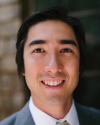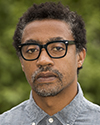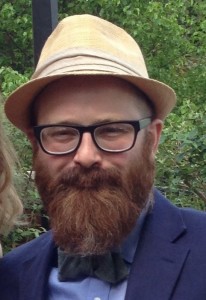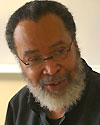2016-2017 CTL Fellows
 Ian Adelstein, Harold L. Dorwart Visiting Assistant Professor of Mathematics
Ian Adelstein, Harold L. Dorwart Visiting Assistant Professor of Mathematics
The standard method of instruction in most college level mathematics courses is the lecture format. This method affords for clear and concise presentation of content, yet provides little opportunity for students to engage with each other or the material during class meetings. Math 332: Analysis II is one of the most advanced mathematics course offered at Trinity, with an intimate student population of junior and senior level mathematics majors. The goal of this project is to introduce a flipped classroom model in this course, requiring students to study the course material before class and allowing for discussion and student led presentation of the material during class meetings. Students will develop many important skills: reading and learning from a mathematics text, communicating mathematics via oral presentations, and engaging in a collaborative learning experience.
 Tanetta Andersson, Visiting Assistant Professor of Sociology
Tanetta Andersson, Visiting Assistant Professor of Sociology
Thinking sociologically about any social problem means evaluating the scope of the problem, casual social arrangements, and implementing effective interventions, or, in the words of one famed sociologist, “we must know, in order to predict, in order to control.” The study of rape and sexual assault within sociology as a subfield is surprisingly small, yet this contemporary issue in college campus life clearly attracts student interest. Through this fellowship, I will develop and subsequently nest data, theory, and praxis modules on campus sexual assault across courses in my present teaching portfolio. In Statistics for Social Sciences, for example, a module which investigates methodological issues relevant to the scope and prevalence of sexual assault equips students to counter challenges to reported statistics on sexual assault. A second module nested in Global Gender Inequalities will guide students through a case study of societies comparing social contexts in which sexual violence is understood as normative versus non-normative. Why is it that we are more inclined to ‘see’ cultural gender ideologies abroad, but not at home? What are the differences between rape-prone versus rape-free cultures, and sub-cultures like college campuses, in particular? Finally, I plan to develop a module which explores the underpinnings of the bystander effect in my Individual and Society course. Together, these modules walk students through how the ‘sociological imagination’ connects gender inequalities in the distal and proximal orbits of their lives.
 Lisa-Anne Foster, Associate Professor of Biology
Lisa-Anne Foster, Associate Professor of Biology
There exists a body of literature examining different approaches to academic advising in higher education. At some institutions, academic advising is housed in a separate campus office staffed by professional advisors who make sure students are on track to complete their degree. This is defined as “prescriptive advising” and allows students to see their education as nothing more than a series of boxes needing to be checked. At Trinity, like many other small liberal arts colleges, it is the faculty who engages in the academic advising of students and too often advising week is seen as an obstacle to be navigated by students and as a burden by faculty. As faculty who advise students, however, we are in the unique position to teach students the difference between meeting degree requirements and being educated. There exists a body of literature on what constitutes a “learning centered” approach to academic advising in higher education. I will use this CTL Fellowship to develop materials to help structure academic advising sessions so they are moments when students learn and demonstrate ownership over their education. The opportunity to discuss varying theories of advising with faculty colleagues from a variety of disciplines through the CTL workshops will be an important part of developing an approach to academic advising that will best serve the students at Trinity College.
 Dan Lloyd, Brownell Professor of Philosophy
Dan Lloyd, Brownell Professor of Philosophy
Students often approach me with a wish to do independent or small group research under my supervision, ranging from .5 credit independent studies to 2 credit senior theses. I generally agree and I outline some possible projects, or perhaps they propose a topic of special interest. Some of these projects overlap with my own research interests, and hold the potential for collaborative work leading to some professional product. However, the usual outcome is not yet ready for prime time. Generally the learning curve is too steep for a student to work independently. In effect, then, I end up teaching an ad hoc course in data analysis. This takes a great deal of time, often several contact hours every week and several additional hours of preparation. The students usually learn quite a bit and seem to be satisfied with their project, but I feel the exercise is very inefficient, occasionally disorganized, and not a useful extension of my own work. Perhaps that’s just the way it is, but I’d like to explore strategies for bringing these independent projects closer to true collaborations, where all parties contribute to a successful project that could be further shaped into a publication with the student’s name on the byline. Although science is the main focus, it would be great to find strategies that might work for student-faculty collaborations in the humanities.
 Kevin MacDermott, Instructor of Physical Education and Head Coach of Men’s Rowing
Kevin MacDermott, Instructor of Physical Education and Head Coach of Men’s Rowing
My project examines the use of Applied Improvisation skills and techniques, employed in the classroom through group games and exercises. Applied Improvisation requires participants to listen intently, respond honestly, and contribute enthusiastically to the collective effort. Executed in the classroom, the exercises cultivate collaboration, camaraderie, teamwork, trust, and creativity. Adapted from training for theatrical performances, improv exercises infuse energy, reduce inhibition, spark creativity and seek to eliminate self-consciousness within the working group. I’m excited to work collaboratively with a large number of constituent groups across campus to put Applied Improvisation principles into practice.
 Seth Markle, Assistant Professor of History and International Studies
Seth Markle, Assistant Professor of History and International Studies
How does one teach a course on building institutional memory devoted to the Trinity International Hip Hop Festival? Founded in 2006, the Trinity International Hip Hop Festival is an annual gathering that seeks to promote unity across cultural, linguistic and political differences by using hip hop as a tool of education and consciousness raising. As a CTL Fellow, I will aim to design a cross-listed course that aims to transform undergraduate students into archivists while raising their awareness about the role of ‘The Fest’ to the global hip hop movement and the importance of archiving for the growth and development of Hip Hop Studies. Through this fellowship, I hope to gain a better understanding of theories and practices of archival production, collection and management; to explore through dialogue the limits and possibilities of training students in record keeping; to develop an asset map of potential contacts and partners; to formulate and enhance pedagogical approaches to archival theories and applications and new information technologies associated with digitization; and to create practical exercises and assignments that provide students with hands-on experience. This course, therefore, will lay the groundwork for establishing a digital and print archive that encourages the pursuit of knowledge about hip hop’s global imprint.
 Dan Mrozowski, Visiting Lecturer in English
Dan Mrozowski, Visiting Lecturer in English
As a CTL Fellow, I plan to bring the art of revision to English 260. My goal is to have students apply the same close reading skills they practice on the prose of Henry James to their own writing and that of their peers. Revision takes us beyond the ritual of editing; it serves as a method of thinking about and enriching our writing through exploration and reflection. Revision also helps us build the sort of metacognitive habits that treat our own essays as texts as rich in potential artistry as the novels they critique. Drawing inspiration from Donald Murray’s classic The Craft of Revision, my intention is two-fold: to foster an ingrained habit of composition that might extend beyond my classroom, and to build more of a reading and writing community within the confines of a course usually devoted to the construction of analytical arguments in isolation. By focusing on revision as a compositional strategy, as an analytical tool, and as an essential part of literary construction, I also hope to present revision as a kind of ethical capacity within the literary classroom that reflects our core mission as a liberal arts college invested in thinking critically and clearly.
 Nichole Szembrot, Assistant Professor of Economics
Nichole Szembrot, Assistant Professor of Economics
My project relates to my new first-year seminar on the topic of controversy in economic policy. I will design the course with the goal of changing the way that students think about the process of research and forming opinions. Students often approach the research process backwards: they start with a conclusion and try to find evidence to support that conclusion. One part of my project is to teach students to start with a question, and then try to find evidence that is best suited to answer that question. A distinct but related goal of the project is to create an environment for forming and expressing opinions that is collaborative, rather than competitive. A student’s goal will not be to defend his/her existing opinion, but instead to engage constructively with other viewpoints and end the semester with an opinion that is consistent with evidence on the effects of policies and the student’s values.
 Maurice Wade, Professor of Philosophy
Maurice Wade, Professor of Philosophy
We want our students to become good writers. Of course, that means mastering grammar, spelling, sentence structure, and the like. Yet, one often finds that students who have mastered these more technical skills nonetheless produce essays with rather insubstantial content. One important reason for this is how they read. Even when their eyes encounter all of the words in a text and even when they actually know the meanings of all of those words, their reading process can be rather shallow. Philosophy, as is true of many disciplines, particularly those in the Humanities, is a very text-heavy enterprise. And, as is true of many disciplines as well, truly comprehending and digesting the content of these texts requires that one engage in deep reading, also referred to as active reading or as close reading. Shallow readers often fail to recognize how the sentences in a text constitute an argument or a coherent narrative. Shallow readers often fail to attend to the context that might motivate or situate a particular text. Shallow readers often fail to recognize, and therefore to use, the various clues that writers often provide (sometimes unwittingly) that can help one to comprehend and digest a difficult text. Students who become deep readers can better use the resources provided in assigned texts to produce high quality content in their own writing and to become better interlocutors in classroom discussions. My project as a CTL fellow is to research strategies for teaching deep reading skills and to develop resources (handouts, exercises, writing assignments, etc.) that can be used in my courses to help students acquire those skills.
